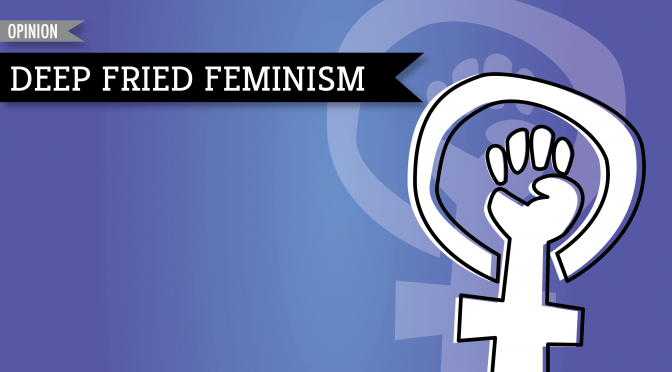
Reverse racism does not exist
By: Megan Graves, Columnist
Reverse racism is a term I’ve been hearing a lot lately, despite the numerous articles that have already emerged saying it doesn’t exist. So, I will say it again. Reverse racism does not exist.
Here’s the thing. White people have never, and will never, face the same systematic oppression that people of color (P.O.C.) have faced for years upon years and still face today. In order to say that a potentially prejudice statement or action against a white person is “reverse racism,” you must be willing to say that whatever was said or done is as offensive as slavery and institutionalized oppression again P.O.C. When you say reverse racism, you are comparing whatever you just faced as an individual to a process of hate which has been instilled against mass numbers of people for centuries.
When you break it down like that, you see how ridiculous and insensitive the term you’re using actually is.
Let’s go a little deeper and discuss what systematic oppression is. Here are some examples. Number one: according to the NAACP’s website, African Americans are incarcerated at six times the rate at which white people are incarcerated. Number two: people of color, men and women, earn between 54% and 75% what a white man earns in the workforce, according to the 2014 Bureau of Labor Statistics reports. Number three: in Flint, Michigan, where children have been poisoned by lead in their water supply, the population is predominantly African American. Similarly, a few years back it was discovered that 25 percent of children living in Harlem, New York, a predominately African-American community, had asthma.
These are just some examples. There are, unfortunately, many, many more.
These issues are systematic because they occur within the system by which the United States is run.
The number of incarcerated African Americans is based on our legal system, the wage discrepancy between white men and P.O.C. is based on our economic system, and the health concerns within predominantly African American communities are based on our health and environmental systems.
In other words, these issues go beyond an individual experience. They are happening to entire communities. They are happening because the system by which our country is run is letting them happen.
It isn’t easy or comfortable to talk about power dynamics and oppression, but we must talk about them.
When a person says something arguably prejudice against a person or group of people who systematically hold power over them, try to imagine the experience of the oppressed before you react.
You don’t have to agree with what they say, you don’t have to like it, but don’t take it personally. Take it as a response to a system that has and continues to hurt them in ways that you never have to experience.
Take the discomfort and offense you originally had toward that individual when you said “reverse racism” and direct it toward the larger issue of systematic oppression.
When we focus on individual conflicts, we form a stalemate in which no one makes any progress.
When we expand our view to that of a society or a nation, we begin to see things more clearly, and that’s when we begin to create the necessary change that leads us to equality.

